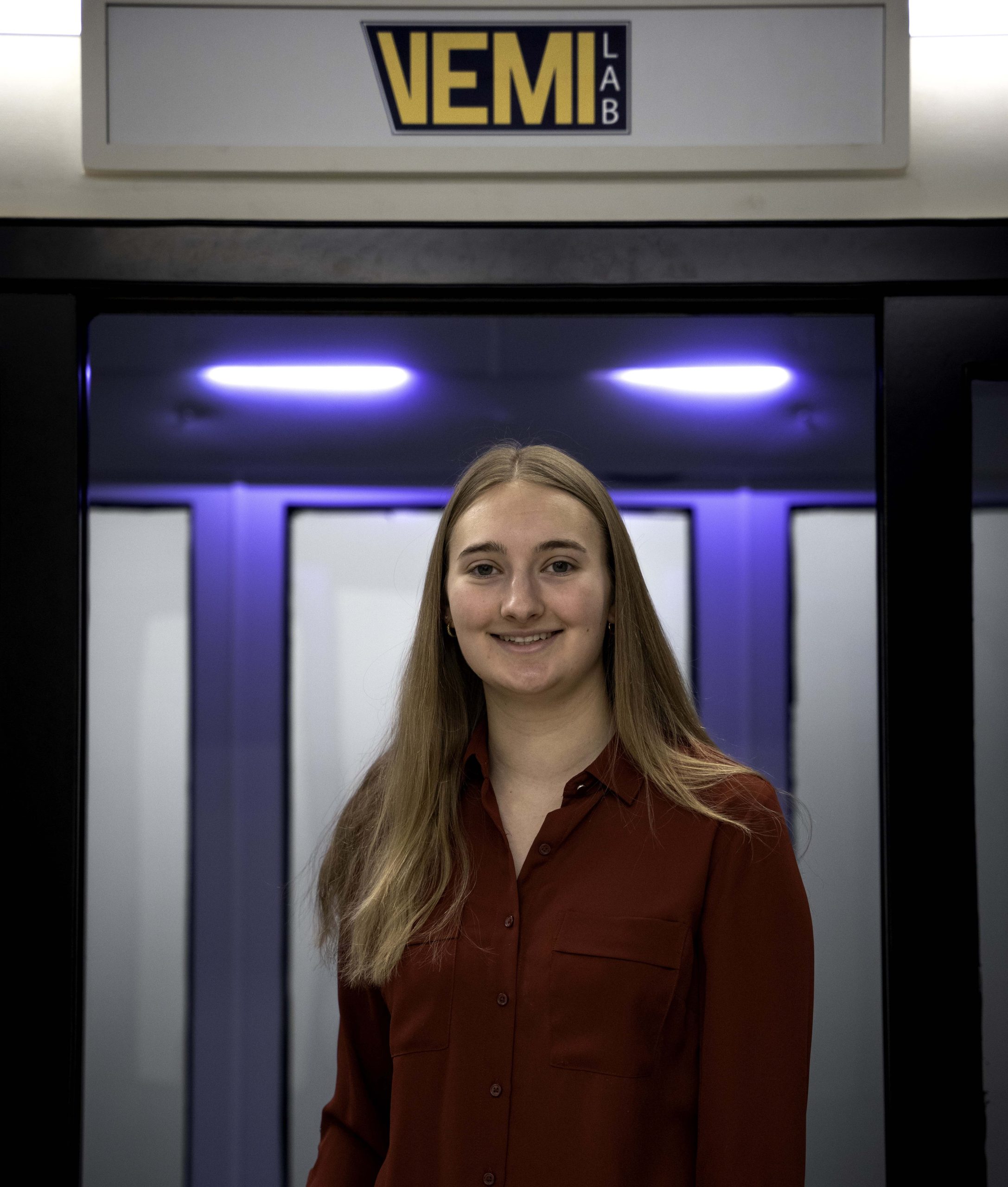
Student Spotlight: Rachel Coombs
While volunteering as an EMT during high school, Rachel Coombs was exposed to a variety of medical devices and equipment. After viewing a presentation in class from Dr. Caitlin Howell, regarding the project she was currently working on, Coombs began working with her on “antifouling coatings to prevent catheter associated urinary tract infections.” That project led to others, some of which were collaborative projects with the VEMI Lab. “Those collaborative projects, along with my minor in interdisciplinary disability studies, further focused my interest in human computer interactions. Now at the VEMI Lab I work on a range of projects focused around increasing inclusivity and accessibility in technology.”
Coombs credits her mentor, Dr. Paul Fink, with providing assistance as her area of interest changed. He “helped me transition my skills from planning laboratory experiments with cells and bacteria to designing an entire study with human subjects from start to finish. He is an incredible mentor because the passion of his work really shines through and inspires me to dive deeper into my own research.”
That research is focused on fully autonomous vehicles (FAVs) and the trust the public has for them. Studies have shown that users don’t necessarily trust the technology but do indicate that increasing the human-like qualities of the artificial intelligence (AI) involved, can alleviate those feelings of distrust. “However, the current literature is unclear on how to best optimize AI voices for user trust in the driving context. To address this gap, my study utilizes an immersive FAV simulator to explore three different renderings of AI voice: female, male, and androgynous/non-binary to evaluate participant trust using an adapted investment game modeled in Swift UI, heart rate monitoring, and self-reported trust scores.”
When asked what advice she had for others who are thinking of getting into research, Coombs recommended finding “a research question or topic that you are genuinely interested in and the research process will be much more rewarding. I like to think of the bigger picture; how my research will benefit others in the future, to motivate me.”
